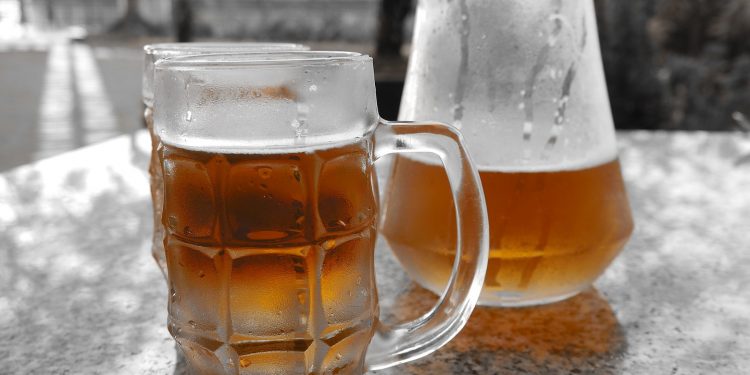The start of a new drinking season
The end of the summer holiday means the beginning of a new high school year – in Danish gymnasiet, which are the last three years of secondary education before going on to university or any other kind of further education and learning.
By Bente D. Knudsen
This also means the start of so called intro parties with heavy drinking.
In august 2016, thousands of high school students – up to 8,000 – were gathered on a Friday evening in Dyrehaven, north of Copenhagen.
Massive drinking led to severe incidents with more than 180 treated on site for excessive alcohol intake, 14 were hospitalised, and one was in such a bad condition that it was life threatening.
The article continues below.
This year, to counter the alchohol intake of their students, several high schools in the Copenhagen and North Zealand area have signed a so called alcohol charter, where for instance they agree that drinks with an alcohol level above 5 percent is not allowed at the high schools’ own parties, that the high schools’ own parties are closed parties and that students who are visibly drunk at these parties are sent home.
One of the high school’s has written a letter to its students’ parents in which they encourage them to talk to their youngsters about responsible drinking, as well as recommending, that their youngsters stay away from the coming Friday evening’s Dyrehave party.
Denmark has an unfortunate top rank in the intake of alcohol amongst its youth, even if the intake of alcohol has gone down over the years.
The article continues below.
In 1996, 59 percent of young people drank alcohol almost every weekend, in 2014 this number had fallen to 46 percent.
92 percent of the 15 to 16 year-old drink alcohol, against a European average of 80 percent, 32 percent of the Danish youth has been drunk once over the past month, against a 13 percent European average according to The European School Survey Project’s report on alcohol and other drugs.
Director Peter Konow of the organisation Alkohol og Samfund (alcohol and the society) says to Danish newspaper Jyllands Posten that the high schools must put focus on the alcohol habits of their students.
“The alcohol habits that you acquire when you are young have a tendency to stick with you into your adult life. In Denmark we drink a lot – and we drink a large amount all at once, this can be seen in our average life expectancy and illnesses.”
The article continues below.
It is a well known fact from research that young people, who experience that their parents find it normal and OK that they drink so much that they get drunk, drink more often, than young people whose parents do not find it OK to get drunk.
Alcohol og Samfund recommends the following to parents with teenagers:
- Check the homepages and Facebook pages of the parties that your teenager is going – and have an opinion of whether or not you think they should go to them
- Make an agreement on how much they may drink
- Make an agreement about what time they should be home – and they they can call you and get help is something happens.
You can also pass on this advice to them before they go to a party:
- Drink responsibly – don’t take part in drinking competitions and stay away from hard liquor
- Make sure to eat properly before leaving – alcohol hits less hard on a full stomach
- Take water or a soft drink with you so that you do not get dehydrated and ill from only drinking alchohol
- Take care of your friends – make agreements that you take care of each other and do not leave anyone who is feeling bad alone – but call for help from parents or other adults. “It’s better to call one time to many than not to have called that one time”


